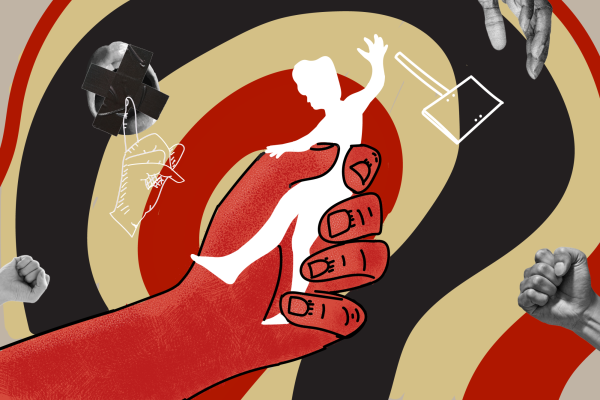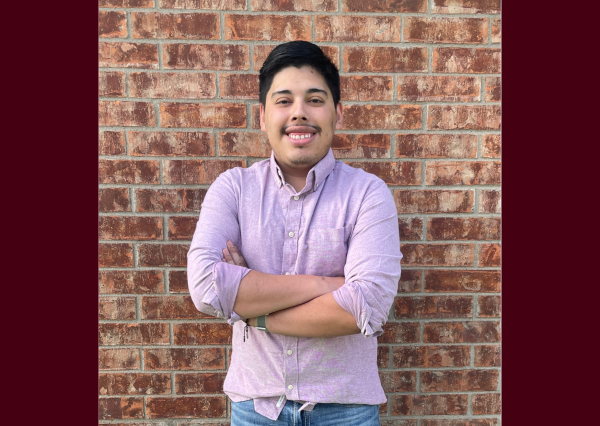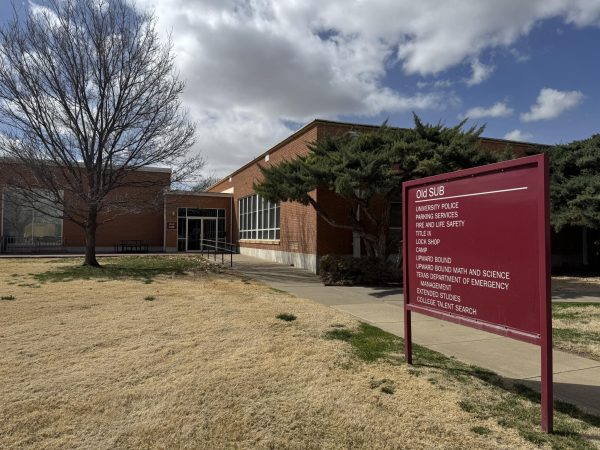Poetry: A vehicle for deep empathy

There are many forms of artistic expression, including music, dance, painting and poetry. Artistic expression is a great way to express emotions, but also to promote understanding between people.
According to an article written by Olafur Eliasson in the World Economic Forum, “…one of the major responsibilities of artists…is to help people not only get to know and understand something with their minds but also to feel it emotionally and physically.”
We are so bombarded by information in this day and age that connecting with issues on a deep, personal level can prove difficult if we have not experienced these issues ourselves. This is where artistic expression, including poetry, can bridge this gap between facts and personal connection.
Dr. Juan García Oyervides, assistant professor of Spanish at West Texas A&M University, completed his undergraduate degree in Chile, where poetry is a popular form of expression.
“There are so many ways that people express their feelings, and there are so many ways that, to you, those [feelings] are inaccessible,” Oyervides said. “But poetry I think is a genre that tries very hard to make those feelings available.”
When people hide their feelings, this concealment can come with the price of being misunderstood. However, the opportunity to share your feelings on a subject or issue does not always come up naturally in conversation. This is where poetry is so powerful.
Poetry does not have to be shared. In fact, many individuals fear sharing their poetry because it is often so personal and revealing. However, when it is shared, it is an opportunity to be understood, and for readers or listeners, to understand and relate.
“As readers, this is our opportunity to take a little peek into their world, not only in how that world is constructed but also how that world is experienced in their eyes,” Oyervides said.
When taking a look into someone else’s world, everything in that world may not be understood. The purpose of understanding through this form of expression is not so much to understand everything completely, but to get a different perspective. This perspective may be relatable to your own in some ways, yet different in others. However, the similarities can bridge gaps of difference, leading to understanding.
Dr. Andrew Reynolds, professor of Spanish and associate department chair for WTAMU’s Department of English, Philosophy and Modern Languages, teaches and researches Latin American poetry.
“Language is unique. Language is so personal, and it has this flexibility and malleability that I think a lot of other forms of expression don’t have,” Reynolds said. “Also, language is highly symbolic. You can do things with language where a certain phrase can mean many different things.”
The symbolism of poetry makes the experience of a work of poetry different for each individual. The writer of the poem may have been thinking of one thing when writing the words of the poem, but another person may interpret it as something completely different. These different interpretations are not wrong, they are simply a different perspective on the same poetic work.
Poetry is not so much a conversation as an uninterrupted expression of feeling and experience. In its purest form, poetry is an unfiltered window into the emotional self, a vehicle for deep empathy.
For the past few years, Dr. Reynolds, through the WTAMU Department of English Philosophy, and Modern Languages and the Distinguished Lecture Series, has arranged for Latina poets to read their poetry for WTAMU students, professors and the public community.
“Even though we’re 25% Hispanic, Hispanic-serving institution, often those voices, women’s voices and Hispanic voices, have been marginalized,” Reynolds said. “It’s always right around Columbus Day, which is Indigenous Peoples’ Day.”
This year’s guest poets were Alessandra Narváez Varela, a poet and teacher who was born and raised in Ciudad Juárez, México and Casandra Lopez, a Chicana and American Indian writer and teacher.











